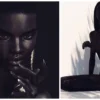Living
Man Awarded $1M After Spending 17 Years In Jail For Crime Committed By His Doppelganger
The eyewitnesses said it was him.
It’s hard to convince people you’re not the person they’re looking for when they have a video of someone that looks like you committing something abhorrent. Even when you believe the truth will prevail, Richard Jones was giving up as he’s spent 17 years behind bars for a crime he didn’t commit.
Richard Jones was falsely convicted of a crime his doppelganger, Ricky Amos, committed. Despite having an alibi, he was jailed in 2000 for aggravated robbery.
Jones shares that he feels “blessed” instead of lucky.

The mistake was uncovered later when victims and witnesses were shown pictures of them side-by-side. Ricky Amos attempted to steal a woman’s handbag in 1999 at a Walmart parking lot in Roeland Park, Kansas.
At the time, Richard was with his girlfriend in Kansas City. Despite the lack of evidence and his alibi, he was still convicted. Several eyewitnesses made mistakes as they pointed to Jones as the culprit.
His attempts to appeal were denied multiple times. It was the Midwest Innocence Project together with the University of Kansas School of Law that attempted to help him.

As they looked into his case, they found out that the doppelganger was actually serving in the same prison as him. When the victim and eyewitnesses were shown their mugshots again, and this time, with Amos’ as a comparison, they couldn’t tell them apart anymore.
Talk about a big “oof” moment right there. Even the attorneys were surprised as one of them said, “We were floored by how much they looked alike.”
Amos denies ever committing the crime, but he was still convicted of the crime. But the statute of limitations has expired so he won’t be prosecuted.

Jones was exonerated in 2017. He shared with Kansas City Star, “When it comes to my kids, it’s been a rough ride, but they are now at an age where they can understand.”
“I don’t believe in luck, I believe I was blessed.”
He received a certificate of innocence and was compensated $1 million.
























